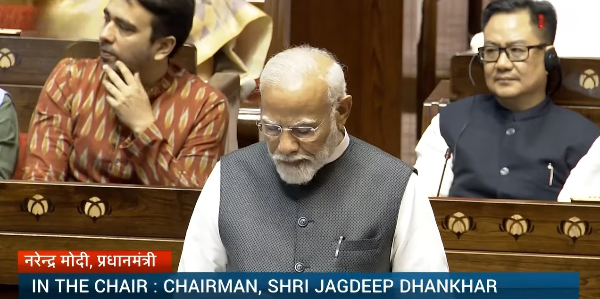Prime Minister Narendra Modi orchestrated a significant moment in India’s parliamentary history by introducing his newly formed Council of Ministers to the Rajya Sabha on Thursday. This followed their introduction in the Lok Sabha a day earlier, immediately following the election of the Speaker.
The session was marked by several key highlights and important moments:
Personal Introductions: Prime Minister Modi personally presented each member of his cabinet to the Rajya Sabha, outlining their qualifications, areas of expertise, and specific responsibilities within the government. This detailed introduction aimed to provide transparency and clarity about the roles of each minister in steering the country’s governance and development agenda.
Unity and Support: The introduction received resounding applause and support from members across political parties, reflecting a spirit of unity and collective responsibility towards national governance. The session underscored the commitment of parliamentarians to work together on crucial issues affecting the country’s progress and welfare.
Presence of Distinguished Leaders: The event was attended by notable leaders including J P Nadda, Leader of the House, Mallikarjun Kharge, Leader of the Opposition in the Rajya Sabha, and senior leaders from various political parties. Their presence highlighted the bipartisan approach to governance and signaled a collaborative effort to address challenges and opportunities facing the nation.
Commencement of Session: Concurrently, the 264th session of the Rajya Sabha commenced with a joint address by President Droupadi Murmu, setting the tone for the legislative agenda ahead. The address outlined the government’s priorities and underscored its commitment to addressing the aspirations and concerns of the Indian populace.
As the newly constituted Council of Ministers assumes office, the focus now shifts to the effective implementation of key policies and initiatives aimed at promoting economic growth, social welfare, and inclusive development. The government’s proactive engagement with parliamentarians during these introductory sessions sets a positive precedent for constructive dialogue and collaborative decision-making in the coming parliamentary sessions.
Looking forward, the upcoming sessions of Parliament are expected to witness rigorous debates, strategic deliberations, and concerted efforts towards achieving sustainable progress and building a prosperous future for all citizens of India.



